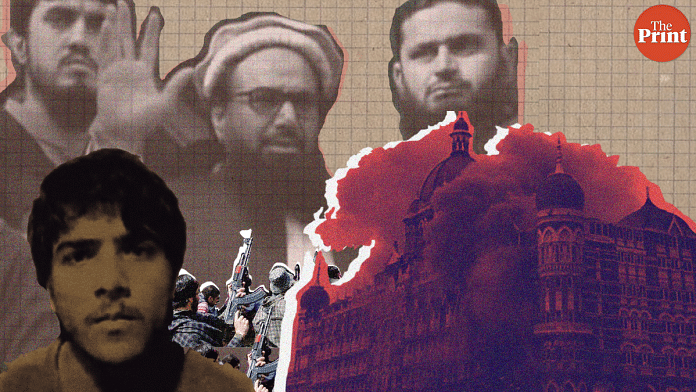Ten years ago, 10 armed Pakistani militants entered Mumbai through the sea and attacked various high-profile locations, killing 166 people in one of the worst terror strikes in the country. Only one of the 10, Ajmal Kasab, was caught alive and hanged to death after a trial.
The Print asks: Was Ajmal Kasab’s hanging enough or can government do more to get 26/11 Pakistani masterminds?
The lessons we should’ve learnt after 26/11 but didn’t is extremely disappointing
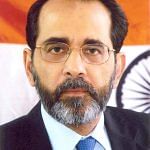 Rakesh Sood
Rakesh Sood
Former Diplomat
Kasab’s hanging couldn’t have acted as a spur to persuade Pakistan to address our concerns regarding action against the perpetrators. The execution was not motivated by that desire, either. Kasab was captured and he confessed; the trial took place and eventually led to his execution. I don’t think there was any political message that the hanging will get Pakistan to change its attitude.
We have two options. India could try exerting pressure on Pakistan, something I find highly implausible given that we don’t have such leverage with them. Or build international pressure. We have seen sporadic movements on this; most recently, the US announcement of a $5-million reward for details on the Mumbai attack.
Neither approach is going to make Pakistan change and bring the guilty to justice.
If our aim is for the perpetrators to be punished, then these two are the more public methods. There is also a third approach, often adopted by Israel. This is a covert approach for neutralising or killing those terrorists who go against the state of Israel. However, this is not one that India has followed.
The 26/11 attacks exposed our shortcomings in both intelligence gathering and the capability of mounting a coordinated response. The time it took to respond was also inordinately long. The number of lessons we should’ve ideally learnt and still haven’t is extremely disappointing.
We were supposed to have a national intelligence grid, a multiagency centre with proper resources. Even if they have been built, they are not as strong and as robust as they ought to be.
Different states have created their rapid deployment forces, but I don’t think they will be as effective given how they may have different levels of training and equipment. We should’ve been working on these from a national stand point.
Until Pakistan takes action against 26/11 masterminds, justice will not be served
 Ujjwal Nikam
Ujjwal Nikam
Special public prosecutor
There is no doubt that we have been able to do justice by the departed souls. This justice is only one part of it – the masterminds who hatched the whole criminal conspiracy have not yet been punished. I will not blame anyone or any Indian agency for it because this aspect of justice involves our enemy country, Pakistan. Pakistan is, unfortunately, protecting the perpetrators. Unless Pakistan takes action against them, full justice will not be served.
Pakistan is avoiding the conviction of Hafeez Saeed and the likes by claiming that Indian agencies have not given any evidence, whereas we have given them sufficient evidence. The fact remains that the criminal conspiracy was hatched on Pakistan’s soil. Pakistan’s investigating agencies should look for evidence domestically.
When I went to Islamabad as part of a four-member delegation, we pointed out exactly what needs to be done in the case to Pakistani authorities. We even have evidence that details the involvement of David Headley. We have furnished it for Pakistani authorities as well.
Regarding Ajmal Kasab, we gave him a very fair trial here and his conviction and execution does personally give me some closure, but I won’t say it is a full closure. I will get full closure only once the masterminds are brought to book, but as I said, there is no one I can blame for it here. It is all up to Pakistan.
Ajmal Kasab killed my senior, his execution gave me some closure
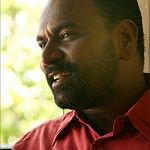 Arun Jadhav
Arun Jadhav
Head constable who worked under slain IPS officer Vijay Salaskar
We have not been able to bring the masterminds of this attack to justice, but it is not easy because it is an international issue. If getting justice was in the hands of the Indian authorities alone, and was limited to action within India by the government, I am sure our government would have done everything possible for it.
But the 26/11 case involves Pakistan, a country that has always been and continues to be a problem for India. The Indian government is still taking every necessary measure and doing whatever needs to be done to push for action in Pakistan. It is an issue of diplomacy too, and our Prime Minister Narendra Modi seems to be taking it up strongly. He speaks about terrorism on a global platform.
I am confident that someday, India is going to be successful in truly delivering justice and getting the masterminds. It will take some time but will happen.
Meanwhile, whatever was possible internally, we have done within the realms of our judicial system.
Ajmal Kasab killed my senior. I was in the same car as Salaskar, Hemant Karkare and Ashok Kamte during the attack. He attacked the city, hurt our people. Our system still gave him a fair trial and access to justice, and executed him. Personally, this is a matter of immense satisfaction.
No ‘pappis-jhappis’ with Pakistan before 26/11 masterminds are punished
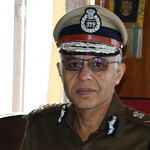 Avinash Mohananey
Avinash Mohananey
Former IB Officer
“Please kill me” pleaded an exhausted Ajmal Kasab after failing to untangle himself from the bear grip of dying assistant sub-inspector of Mumbai Police, Tukaram Omble. Kasab knew his fate, if captured. All foot soldiers of Mumbai attacks perished, but masterminds thrive and are part of electoral mainstream politics in Pakistan.
As the conspiracy unravelled and the hurt nation was seething with anger, several punitive military doctrines were thrown up by armchair strategic thinkers, who are neither supposed to fight nor lead troops in case of war. On the other hand, the international community urged India to exercise restraint, promising to pressurise Pakistan to bring the perpetrators to book.
Having perfected the game of deception, Pakistan pretended to have taken action against perpetrators, but knew well that the pressure would ease with time – the usual wait and watch. The case in Pakistan is heading nowhere and the world is no more bothered.
So, in a way, international intervention only diffused the potentially hostile situation between the two countries at that time. In any case, after overt nuclearisation of South Asia, the world is unlikely to sit quiet, if tensions soar between the two countries.
History has shown that India has hardly any covert capabilities to take revenge and war was certainly no option. So the only the remaining option of using international leverage was chosen.
The Mumbai serial attacks should remain eternally etched in the institutional memory of the ministry of external affairs, so that any effort for normalisation is preceded by punishment to all perpetrators by Pakistan. No ‘pappis jhappis’ till then, please.
We are definitely better prepared if a terror strike happens again
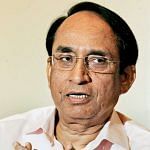 M.N. Singh
M.N. Singh
Former commissioner of police, Mumbai
The investigating team, which is the police, has done its part by telling the world at large who the masterminds of the 26/11 attacks were. Now, the Indian government has been trying to get hold of them, but Pakistan has not been cooperating despite international pressure, sanctions and so on.
The 26/11 attack was the handiwork of the LeT and Hafiz Saeed. His trial is not making any progress. Now, he is a free fellow and even contested elections. He is part of Pakistan’s political system and I have absolutely no hope of us getting justice through the normal process.
As long as the army and the ISI call the shots, Pakistan will be a permanent enemy of India and we will continue to face a threat of such attacks. The question is, whether we are ready to battle such threats.
A lot has been done since 26/11, but there is always scope for improvement, particularly in the matter of our coastal security. We have a three-tier coastal security system comprising the Navy, the Coast Guard and the Mumbai Police. This arrangement is not fool-proof. The civil police should only police the land area and not the waterfront, for which we neither have the adequate training, nor the mindset, and the waterfront should entirely be the responsibility of the Navy and the Coast Guard.
A few things have been done on the intelligence side. There is an inter-agency coordination and an exchange of information at the Centre level now and it is working quite well. There is also a national grid of intelligence sharing and it has, by and large, worked well.
During the 26/11 attacks, we were totally dependent on the Centre’s National Security Guards and it took nearly 36 hours to deploy them because they were based in Delhi. We lost time and lives. But today, we have an NSG unit in Mumbai, there is Force One in Mumbai and the state police too have created some capabilities to respond promptly.
So, if a terror strike were to happen again, we are definitely better prepared to respond to it. But if you ask me if we are prepared to prevent a terror attack, I am not very sure. There is always scope for improvement.
Families of senior govt officials, police officers who died in 26/11 are treated better than families like mine
 Ashwini Bhagan Shinde
Ashwini Bhagan Shinde
Daughter of Bhagan Shinde, a conservancy worker who died in the attacks
My father was a conservancy worker at GT Hospital in Mumbai. He was fatally shot when he had stepped out, apparently to make a call to my mother. I was 10-years-old when he died, and it has been 10 years since, but I remember every part of the day clearly.
In all these years, I don’t think my family feels that we have got justice. Yes, Ajmal Kasab was convicted, but the government should definitely try harder to bring all those responsible for the attacks to book. They should also do more for the families of those who died.
For eight years after the incident, my mother had to fight to get the compensation due to her. She went to Mantralaya, to the governor and to every possible authority. It was finally sanctioned in 2016. The government had also promised a petrol pump dealership to the families of government employees who died in the attacks. Some families have received this. Some, like us, have not. We have made several requests and reminders, but nothing moves.
We also feel a sense of discrimination in how the families of seniors in the government or police officers are treated and the treatment meted out to us. Every year, around the anniversary of the 26/11 attacks, people call victims and their families for memorial events. We are not called on the big stage. It is the police officers and their families who are. There are places where they do invite us, but we feel bad that we are seated behind, while families of seniors in government or police services are seated on the dais.
By Manasi Phadke, associate editor at ThePrint.


